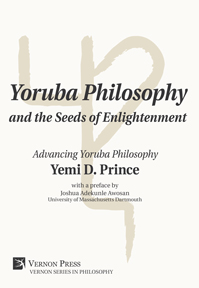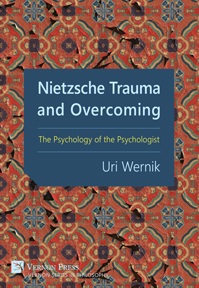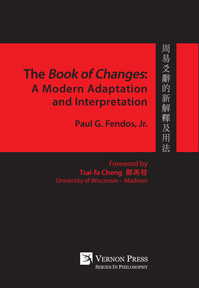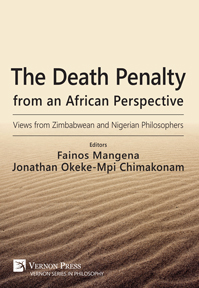Search
Browse
by Publication status
by Subject
Anthropology (26) Art (171) Business and Finance (38) Cognitive Science and Psychology (63) Communication and Journalism (51) Economics (116) Education (71) History (169) Human Geography (23) Interdisciplinary (43) Language and Linguistics (178) Law (16) Music Studies (18) Philosophy (222) Political Science and International Relations (127) Sociology (404) Statistics and Quantitative Methods (21)by Series
Series in Literary Studies (62) Series in Philosophy (57) Series in Education (49) Series in Sociology (42) Series in World History (31) Series in Politics (30) Bridging Languages and Scholarship (26) Series in Language and Linguistics (25) Cognitive Science and Psychology (20) Series in Philosophy of Religion (20) Series in American History (19) Series in Art (19) Critical Perspectives on Social Science (16) Series in Cinema and Culture (16) Curating and Interpreting Culture (15) Series on the History of Art (14) Series in Anthropology (13) Series in Critical Media Studies (13) Economics (13) Series in Business and Finance (12) Series in Music (12) Series in Performing Arts (9) Philosophy of Personalism (8) Series in Communication (8) Series in Law (8) Series in Economic Methodology (7) Series on Climate Change and Society (7) Classics in Economics (6) Series in Economic Development (6) Women's Studies (6) Philosophy of Forgiveness (5) Series in Built Environment (5) Series in Economic History (5) Series in Philosophy of Science (4) Series in Social Equality and Justice (4) Series on the History of Science (4) Serie en Sociología (3) Series in Contemporary History (3) Series in Creative Writing Studies (3) Series in Design (3) The Interdisciplinary Built Environment (3) Series in Heritage Studies (2) Series in Innovation Studies (2) Serie en Ciencias Políticas (1) Serie en Comunicación y Medios (1) Serie en Entorno Construido (1) Serie en Estudios Culturales (1) Serie En Estudios Literarios (1) Serie en Filosofía (1) Serie en Música (1) Series in Classical Studies (1) Series in Economics of Technological Change (1) Series in Philosophy of Race (1) Series in Urban Studies (1)by Language
English Spanishby Author
Browsing with filters
The Origins of Liberty: An Essay in Platonic Ontology
March 2018 / ISBN: 978-1-62273-289-0Availability: In stock
424pp. ¦ $68 £48 €55
Unlike the vast majority of existing literature on Plato, this book seeks to argue that liberty constitutes the central notion and preoccupation of Platonic thought and that his theory of ideas is indeed a theory of liberty. Moreover, this book contends that Plato’s thought can be understood to be both one of liberty and a theory of liberation. Bound up in its efforts to reveal both the ideal liberty and the conditions and possibility of its existence in the so-called ‘real world,’ the thought of liberty tends to be all-encompassing. Consequently, this book seeks to expose how liberty can be understood to influence Plato’s ontological form of analysis in relation to politics, philosophy, and anthropology, as well as its influence on the structural unity of all three. Understood from such a perspective, this book frames Platonic philosophy as primarily an investigation, an articulation and as a way of establishing the relationship between the individual and the collective. Importantly, this relationship is acknowledged to be the natural and original framework for any conception and exercise of human liberty, especially within democratic theory and politics. By treating Plato’s philosophy as a continuous effort to find modes and dimensions of liberation in and through different forms of this relationship, this book hopes to not only engage in the discussion about the meaning of Platonic ontological-political insights on different grounds, but also to provide a different perspective for the evaluation of its relevance to the main contemporary issues and problems regarding liberty, liberation, democracy and politics. This book will be of interest to both undergraduate students, experienced scholars and researchers, as well as to the general public who have an interest in philosophy, classics, and political theory.
Yoruba Philosophy and the Seeds of Enlightenment
Advancing Yoruba Philosophy
September 2017 / ISBN: 978-1-62273-301-9Availability: In stock
256pp. ¦ $61 £50 €58
For upwards of 25 years, Yemi D. Prince (also known as Yemi D. Ogunyemi) has systematically devoted himself to the education, research and reason of Creative Writing and from Creative Writing to Creative Thinking and from Creative Thinking to Yoruba narrative, cultural, folk philosophy. On realizing that Creative Thinking has become his area of focus and interest, he succeeds in cultivating big ideas, combining them with his life-long experiences in the Humanities, transforming them into new ways of writing, thinking or reasoning. (Some of his big ideas have led to the publication of booklets such as Yoruba Idealism, We Should All Be Philosophers, The Artist-Philosophers in Yoruba land, Codes of Morality and Pursuit of Wisdom.) Thus his big ideas have helped him separate Yoruba folk philosophy from Yoruba autochthonous religion. With his love for big ideas, born out of Creative Thinking and Critical Thinking, he has been able to put a new face on Yoruba Philosophy.
Nietzsche Trauma and Overcoming
The Psychology of the Psychologist
September 2017 / ISBN: 978-1-62273-294-4Availability: In stock
178pp. ¦ $57 £47 €54
"Nietzsche Trauma and Overcoming " shows that Nietzsche suffered from Post-Traumatic Stress Disorder, and most probably was a victim of childhood sex abuse. I bring convincing evidence from his texts to support these claims, along with a discussion of corroborating psychological findings on these issues. I show that he teaches coping with pain and suffering, based on his life experience, with lessons from the school of war, the wisdom of reinterpretation, and artistic activity. His three themes of the Superman, Eternal Recurrence, and the Will to Power, the heart of his philosophy and psychology, are understood in a new light, in relation to his personal suffering and overcoming. The book criticizes the attempts to diagnose Nietzsche as suffering from various psychiatric disorders, psychoanalyze him as a fatherless child grown old, and outing him as a closet homosexual. These approaches lead to a dead-end. Firstly, it is impossible to prove that someone is a paragon of mental health, not a covert homosexual, and unmoved by a parent’s death. Secondly, these speculations explain only a small part of Nietzsche’s personal statements, found in his writings. Thirdly, and most importantly, they do not change our understanding of his ideas and how they were arrived at; they do not increase our appreciation of him; and do not leave us with any lessons for life (the goal of any good writing according to Nietzsche).
The Book of Changes: A Modern Adaptation and Interpretation
Paul G. Fendos, Minnesota State System
Availability: In stock
290pp. ¦ $63 £47 €53
The Book of Changes: A Modern Adaptation and Interpretation attempts to breathe new life into the Book of Changes by making it relevant to the present time and day. It does so by using archaeological evidence to trace the origins of the Book of Changes, starting with numeric trigrams and hexagrams, making its way up to early divination manuals, and ending with the oldest extant version of the Books of Changes—usually referred to as the ‘received version.’ It also explains the development of the Book of Changes from a divination manual into a philosophical text dealing with change. However, its main focus is on delineating sixty-four patterns of change in the Book of Changes, patterns based on novel metaphorical interpretations of the line texts in the Book of Changes that serve as the foundation for a new handbook on change. Each metaphorical interpretation consists of 1) a hexagram and the Chinese character associated with it, 2) a ‘description’ of the hexagram, 3) the Chinese characters for the line texts, 4) translations of the line texts, 5) a general interpretation of the line texts based on those translations, 6) and some explanatory notes that attempt to clarify each interpretation. Translations and the interpretations based on those translations reference Traditional and Modernist understandings of the line text materials, ancient texts/dictionaries/lexicons from the period when the Book of Changes was compiled, and the ideas of the author as he works to create a new Chinese ‘philosophy of change,’ complete with examples of how it can be adapted in modern-day life. The clear and concise general introduction to the Book of Changes that is incorporated into this work, the many interpretations of the line texts contained in it, and a popular philosophical content make this book a welcome addition to the field and will attract interested scholars and teachers, engage business people or those looking to better understand Chinese culture, and appeal to those focused on spirituality and holistic living.
The Death Penalty from an African Perspective
Views from Zimbabwean and Nigerian Philosophers
Edited by
Jonathan O. Chimakonam, University of Pretoria, South Africa
and Fainos Mangena, University of Zimbabwe, Zimbabwe
Availability: In stock
252pp. ¦ $61 £50 €58
This book is about an African philosophical examination of the death penalty debate. In a 21st century world where the notion of human right is primed, this book considers the question of the death penalty in two sub-Saharan African countries namely, Zimbabwe and Nigeria, notorious for their poor human right records. This edited collection comprises of 11 essays from Zimbabwean and Nigerian philosophers. As opinions continue to divide over the retention or abolition of the death penalty, these African philosophers attempt to localise this debate by raising the following questions: What is the meaning of life in the African place? Is it proper to take the human life under any guise at all? Who has the right to take the human life? Can the death penalty be justified on the bases of African cultures? Why should it be abolished? Why should it be retained? Indeed, this book is the first of its kind to engage the tumultuous issue of capital punishment in the postcolonial Africa and from the African philosophical point of view.






